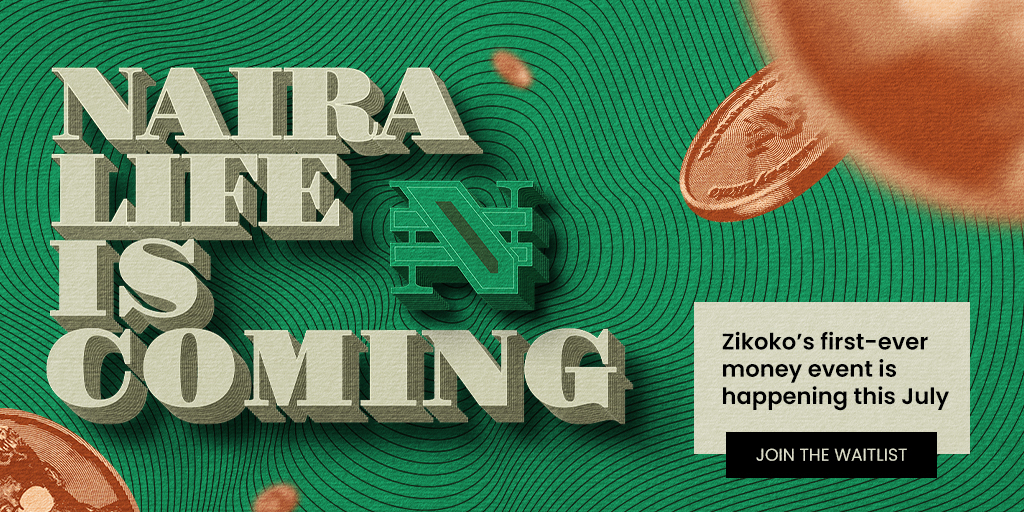
Money can be a soft pillow or a sharp knife; it all depends on how you handle it. These seven Nigerians have danced with both ends of the spectrum. From losing millions to betting and spending ₦45k on kilishi, here’s how they fumbled the bag and what they learnt along the way.
“I let my husband take over my business, now I have to beg him for money” — Bisi, 41
I used to run a big shoe store in Balogun. On good days, we made ₦200k. My husband was a contractor, and I allowed him to manage my business temporarily when a major project fell through.
He was working with another contractor who mismanaged funds and disappeared. To cover the shortfall, he dipped into his personal savings. The loss hit him hard: emotionally and financially, and before I knew it, he had thrown himself into helping me run the store.
At first, it made sense. He’d invested money in the business and wanted to help. It was good for us.
But slowly, I lost control. He didn’t want me at the store as frequently anymore. He said I should rest, stay home, and care for our four kids.
Now, I only “assist” sometimes. It doesn’t feel like mine anymore. The worst part is having to ask him for money to buy things.
That used to be my business. I built it from scratch. Now, I’m just the woman who used to own it.
If I could go back, I’d never give up full control. Support is one thing, but as a woman with a business, you should always keep your name and power on the door.
“I moved abroad and regretted it” — Dare, 27
In Nigeria, I earned $2k-$3500 per month from US freelance jobs. I lived large, took care of my family, and never worried about bills.
Then, in 2023, I left for a Master’s degree in the US, thinking I would level up. But reality slapped hard. Between paying monthly rent, taxes, and bills, I can’t afford to be a big spender anymore. I miss Nigeria and the comfort of having more than enough.
I contemplated moving back and even visited last year to see if I could settle again, but I just can’t see myself living in Nigeria anymore.
Now, I’m learning to be more disciplined with money: how to budget properly, cut back when necessary, and still leave room for small enjoyment. It hasn’t been easy, but I’m adjusting.
“I let fear cost me a million” — Ire, 23
It was sometime in April 2019. Ethereum was still a baby coin, and 1 ETH was worth about $162. I didn’t know much, but I had a friend who did. So I sent him money to help me buy one unit.
However, his bank had issues when he tried to convert my naira to crypto. The money got stuck, and I panicked.
“Just send my money back,” I told him.
He did.
On April 16, 2025, Ethereum was worth over $1,500.
That moment haunts me often. I could’ve made at least ₦1.8 million from that one move. That’s how one small fear turned into a missed opportunity.
“I spent ₦45k on kilishi, then almost went broke” — Funmi, 24
Two weeks ago, I travelled to Abuja for a work retreat and suddenly developed an intense craving for kilishi. I booked a ride to Area 1, spent ₦15k on the trip and ₦30k on kilishi. That same day, I also sent ₦35k to family for black tax and had a ₦50k monthly savings obligation, all out of my ₦200k salary.
I have ₦70k left to survive the rest of the month. From that, I still have to buy fuel, data, and everything else. I kept thinking, Why did I do that?
I used to think impulse spending wasn’t a big deal. But when you’re trying to stretch ₦70k over two weeks, reality slaps hard.
“I lost ₦30 million to gambling” — Quadri, 27
In 2018, I placed my first-ever sports bet and lost ₦800k in one week. I was 20 and had just started university.
As a student, I’d just started making good money from running ads on my WhatsApp TV, and as an early crypto adopter, I was also pulling in steady profits. Then a friend showed me how gambling works, and I got pulled in.
That crazy loss was followed by an even crazier win. The next week, I tried my luck again and won ₦1.2 million on a ₦200k bid. That’s where the madness started.
For three years, I was addicted. Day by day, ₦50k here, ₦300k there, until I’d lost nearly ₦30 million — money I worked hard for. It cost me more than cash. My academics, my mental health, even my relationships, everything took a hit.
One day, I just snapped. I stopped chasing losses, unfollowed every punter on social media, and activated self-exclusion on all the betting apps. I had to be real with myself, betting would never make me rich. It was only making me poorer, mentally and financially. Choosing to stop was the first real win I had in years.
Now, I tell every student I meet: betting won’t take you out of poverty. It’ll keep you there.

“I thought the money would never stop coming” — Akin, 25
One day in 2021, I checked my Upwork dashboard and saw I’d made over $5,000 in my earnings history, but had spent it all. I thought, “Did someone help me spend this money without telling me?”
I had been working as a content writer on Upwork for about 2–3 years, gradually growing my account. But I was terrible at saving. I didn’t know how to say no, and I’d give people money for no real reason. I didn’t even cook. I just kept buying food and spending anyhow, thinking more money would always come.
It’s not as if I lost the money to a scam or a bad investment. I just spent it all, mindlessly.
Then work started slowing down. As AI crept into the content writing space, there were fewer clients, and I didn’t even have anything to fall back on. I’d already spent all my money. That’s when it hit me that you can make money, but if you don’t manage it well, you’ll just be stuck when things slow down.
“I trusted the wrong mentor” — Larin, 24
My biggest financial mistake was the trade that wiped out all the savings and profits I’ve been gathering since 2024. Everything was gone in less than a day.
I’ve been into forex trading for a while. In February, my mentor dropped a signal and told us to buy a particular trade. Without thinking twice, I went all in and emptied my account. The trade backfired badly. I lost $650 just like that.
What’s worse, I saw the signs. My gut told me not to enter the trade, but I ignored it because I trusted the person who gave the signal. Looking back, I shouldn’t have followed that mentor at all.
Since then, it’s been rough trying to get back on my feet. I had to start again from scratch, back at the ground level, with no funds, backup, or anything. But I learnt the hard way: always manage your risk, never trust anyone blindly, and never, ever put all your eggs in one trade.

Click here to join the waitlist for Zikoko’s first-ever money event!




